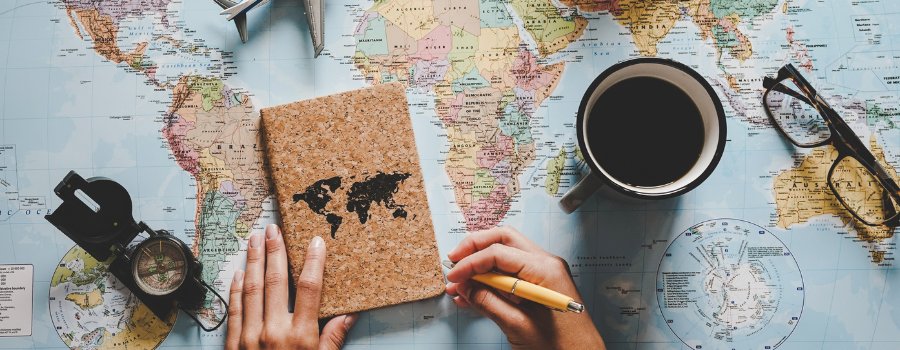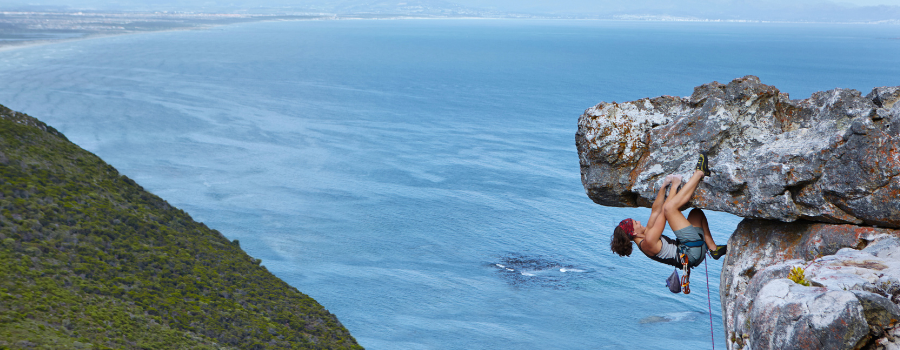Do you also believe traveling is too expensive or that solo trips are unsafe? Think again!
These myths have kept countless people from exploring the world and making memories they’ll never forget.
In this post, we’re demystifying the most common travel misconceptions that stop dreamers in their tracks. Whether it’s the myth that luxury is the only way to go or that you need a packed itinerary to have fun, we’re here to set the record straight.
Ready to find out the truth and plan your next adventure without fear or fuss?
Let’s dive in!
Myth 1: Solo Travel is Dangerous

For many people, the idea of traveling alone sounds intimidating, and the belief that solo travel is dangerous holds them back.
While safety should always be a top priority, solo travel is not as risky as it’s often portrayed. Many solo travelers report that their journeys were life-changing.
There are steps you can take to ensure your safety while traveling alone, such as researching your destination, staying in well-lit and populated areas, and avoiding risky behavior.
Technology can also make solo travel easier, with apps that help you find safe accommodations, transportation, and places to eat. Many solo travelers also meet other travelers along the way, making it easy to connect with like-minded people.
With the right precautions, solo travel can be safe and incredibly exciting.
Myth 2: You Have to Plan Everything in Advance

The myth that every detail of your trip needs to be planned out in advance can create unnecessary stress and pressure. While some planning is necessary, such as booking flights, accommodation, or certain activities, it’s okay to leave some things open for spontaneity.
Sometimes, unplanned moments often lead to the most memorable travel experiences. Whether it’s stumbling upon a hidden café, meeting locals, or discovering a new favorite destination, sometimes the best parts of travel come from leaving room for the unexpected.
You don’t feel the need to micromanage every aspect of your trip.
Myth 3: You Need to Be an Expert to Travel to Remote Destinations

Many people believe that traveling to off-the-beaten-path destinations requires expert knowledge. While it’s true that remote locations may require a bit more preparation, they are often more accessible than people think.
Many tour operators offer guided tours to remote destinations, making it easier for novices to explore areas they might otherwise avoid. Researching your destination, ensuring you have the proper gear, and seeking advice from experienced travelers or local guides can help you feel more confident about visiting less-visited places.
Myth 4: Traveling Requires a Lot of Physical Effort

Some people avoid travel because they believe it requires significant physical effort. While certain types of travel, like hiking or adventure tourism, may be physically demanding, there are many ways to travel that don’t require strenuous activity.
Cities, beaches, and cultural experiences can be enjoyed without much physical effort. You can spend your days exploring museums, dining at local restaurants, or simply relaxing by the pool.
The key is to choose travel experiences that align with your physical comfort level and personal interests.
Myth 5: Traveling is Too Expensive

One of the most common myths about travel is that it’s too expensive. The idea that you need a huge budget to explore new destinations can be discouraging, especially when many of us are trying to stick to a budget. However, with a little planning and flexibility, traveling can be more affordable than you think.
There are numerous ways to save money on travel. Booking flights in advance, traveling during off-peak seasons, or using travel deal apps can significantly lower your costs. Additionally, choosing budget accommodations like hostels, guesthouses, or Airbnb can be much more affordable than hotels.
Eating at local markets or street food stalls rather than fancy restaurants can also help you stick to your budget while enjoying authentic flavors.
Myth 6: Adventure Travel is Only for Thrill-Seekers

Adventure travel is often associated with extreme sports, rugged expeditions, and daring experiences, but this is a narrow view of what adventure can be. Adventure travel is about stepping out of your comfort zone and trying something new, whether that’s hiking through a national park, taking a cooking class in a foreign country, or exploring a remote village.
Adventure can be tailored to your own interests and comfort level. It doesn’t have to involve skydiving or mountain climbing. For many travelers, adventure simply means discovering something unfamiliar and embracing new experiences in a way that’s both exciting and meaningful.
Myth 7: You Need to Be Young to Travel

There’s a common myth that traveling is only for young people, and that as you get older, you become less able or less interested in exploring the world.
The truth is, travel has no age limit. Many older travelers embark on life-changing journeys, whether it’s visiting bucket-list destinations or simply taking a long-needed break.
With so many travel options available, there’s no reason why age should be a barrier. In fact, older travelers often find that they have more freedom, time, and resources to dedicate to their adventures. Whether you’re in your 20s or 60s, travel can be a rewarding experience at any stage of life.
Concluding Note
Traveling is one of the most enriching experiences you can have, but many myths prevent people from embarking on their adventures, like the ones mentioned above.
By debunking these myths, you can free yourself from the fear, misconceptions, and doubts that hold you back from exploring the world.
Whether you’re traveling solo, on a budget, or just for a weekend, remember that the world is full of amazing opportunities waiting to be discovered. Don’t let these myths keep you from your next great adventure!
![]()

